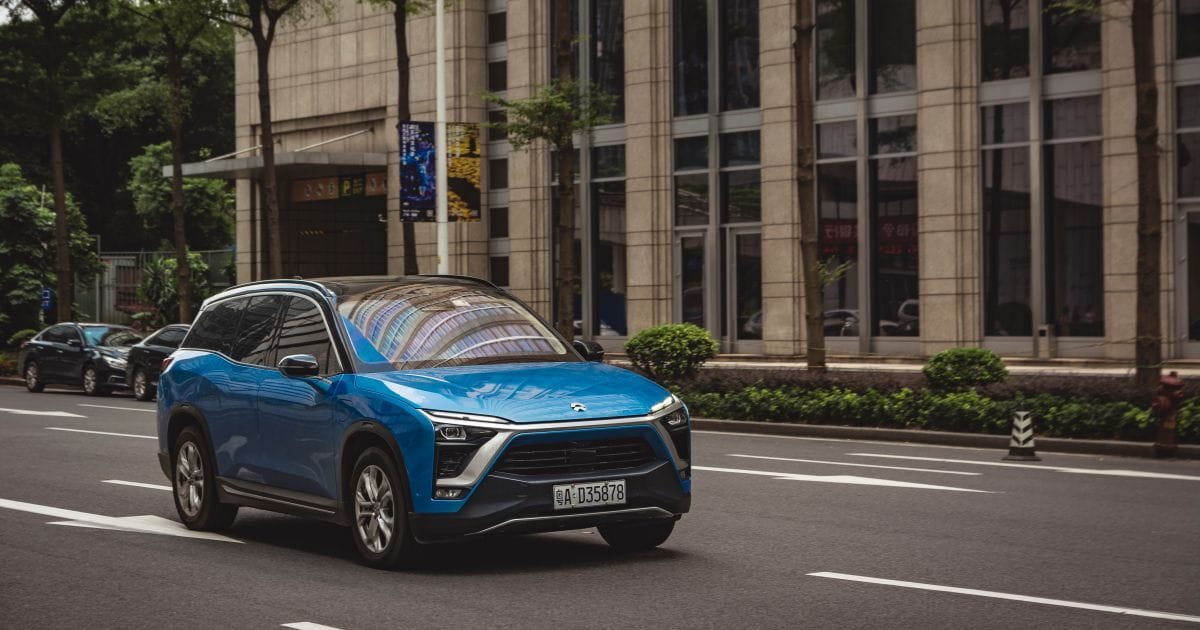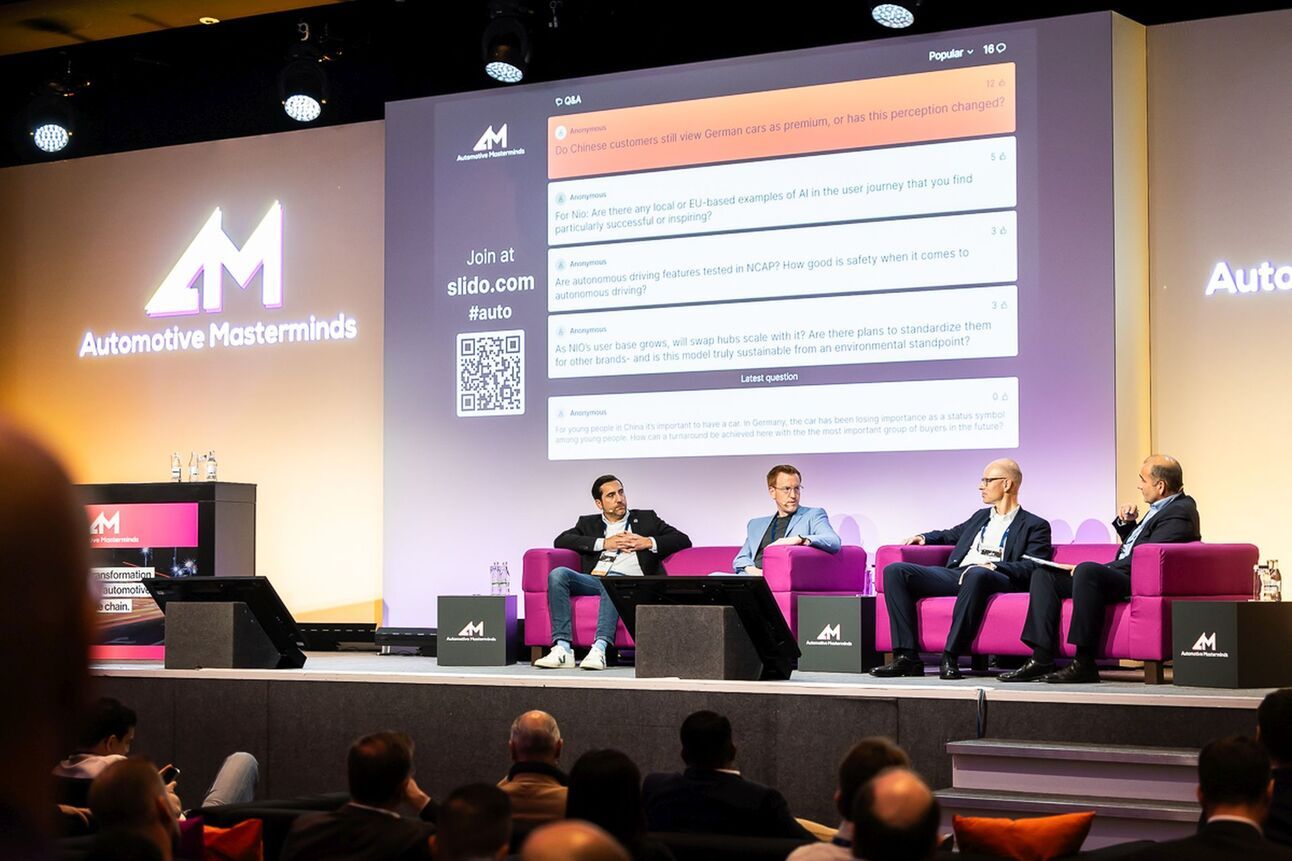
Copyright: Johnnie Rik / Shutterstock
At first glance, Europe and China seem to live in different EV worlds. In China, speed, smart features and digital services dominate. In Europe, trust, quality and long-term brand consistency remain key. But as Chinese EV makers accelerate their expansion into European markets, understanding these cultural and structural differences becomes crucial.
In this issue, we reflect on a recent panel discussion at Automotive Masterminds 2025 in Berlin, where voices from NIO, FTI Consulting and Elektroauto-News explored what European customers really expect—and how Chinese brands can respond.
Let’s dive in.
Sebastian
Europe Is Not China – And That’s the Challenge
While EV customers in China embrace innovation, digital services and tech features, their European counterparts often prioritize reliability, brand heritage, and a seamless ownership experience. But how should automakers navigate these divergent expectations?
This question was at the heart of a panel discussion at Automotive Masterminds 2025 in Berlin: “Adapting to new roads: Customer priorities in European vs. Chinese automotive markets.” Moderated by Prof. Dr. Alexander Tsipoulanidis (Berlin School of Economics and Law), the panel featured
🔹 David Sultzer, General Manager, NIO Germany
🔹 Dr. Heiko Rauscher, Partner & Senior Managing Director, FTI Consulting (see also his China Deep Dive)
🔹 and myself, Sebastian Henßler, Editor-in-Chief of Elektroauto-News.
As someone who has followed the Chinese EV market for years, I remain impressed by the speed and openness to innovation. “Chinese customers are more curious, more experimental, and quicker to give new brands a chance,” as David Sultzer put it during the panel. I fully agree. In China, it’s not the brand heritage that matters most - it’s the functionality and value a product delivers.

Coypright: Anne Großmann Fotografie | from left to right: David Sultzer, Sebastian Henßler, Dr. Heiko Rauscher and Prof. Dr. Alexander Tsipoulanidis
Brands like Nio, Xpeng or Aito have established themselves not because of their legacy, but because of what they offer: modern technology, intuitive digital experiences, and service models that are still rare in Europe. As Dr. Heiko Rauscher noted, “The Chinese market is incredibly competitive and moves at high speed. OTA updates, voice assistants, AI features - these are no longer futuristic. They’re expected.”
This shift is already influencing global standards. Customers in China increasingly ask:
🔹 How fast can I charge?
🔹 How smart is the app?
🔹 How much convenience does this EV add to my daily life?
And these are the very questions that will soon define success in Europe as well.
That said, European markets operate differently. What often sparks enthusiasm in China can be met with skepticism in Europe. Brand trust, consistent quality, and transparent communication still outweigh feature lists. I put it this way during the panel: “Trust is essential in Europe. That includes product quality, but also data protection, sustainability, and long-term brand presence.”
Dr. Rauscher emphasized: “Legacy is a strength - but it can also be a liability if expectations evolve and the response is too slow.”
The core challenge is not innovation per se - but the way it’s introduced. European customers demand more than product performance. They want context, clarity, and cultural alignment. As I said: “Without local visibility, credible communication, and real service structures, success in Europe is difficult.” And that applies equally to Chinese newcomers and legacy OEMs trying to redefine themselves.
David Sultzer confirmed this strategy for Nio in Germany: “We can’t succeed with a China copy. We need to operate as a European brand - with local teams, local expertise, and offerings tailored to local needs.”
This does not mean that European consumers are tech-averse. On the contrary - they simply ask more nuanced questions. Where is the battery produced? Will software updates remain consistent? Who has access to my data? These are not signs of resistance - but of a mature and conscious consumer mindset.
To win in Europe, brands must communicate less loudly - but more clearly. Trust is not built on flashy tech. It’s built on how that tech is integrated and supported.
Localization is not a marketing layer. It’s a strategic foundation.
That was a clear takeaway from the panel. Chinese EV makers entering Europe must adapt - not just technically, but culturally and structurally. What’s celebrated as a “cool feature” in China can come across as a gimmick in Europe - unless it’s embedded in a seamless, culturally relevant user experience.
“We don’t need Chinese cars for China - we need European EVs from Chinese brands,” Sultzer said. At Nio, that means local teams, dedicated services, and physical spaces like Nio Houses that build community - not just customer contact.
As Dr. Rauscher warned, many brands underestimate the complexity of the European market - from regulatory frameworks to user expectations. And that’s where the real challenge lies. It’s not just about building a great product. It’s about understanding how that product fits into daily European life - legally, culturally, emotionally.
This is true not only for Chinese players - but for European OEMs rethinking their own identities. The benchmark is no longer set in Wolfsburg or Paris alone. It’s set globally.
What became clear during the panel: China and Europe are not in competition - but in a dynamic relationship shaped by vastly different user expectations. The Chinese market leads with speed, integration, and bold execution. Europe demands resilience, trust, and a long-term view.
To succeed in both worlds, automakers must become translators - of values, of expectations, of what mobility means in daily life.
Or as Prof. Dr. Tsipoulanidis aptly concluded: “The future belongs to those who don’t just build new roads - but understand where their customers really want to go.”
Thanks for reading and being part of this journey. If the content resonated with you, I’d be genuinely grateful if you passed it along to colleagues, friends, or anyone who shares an interest in the future of mobility.

Sebastian, Founder of China EV Pulse

